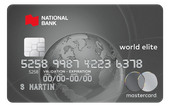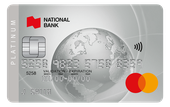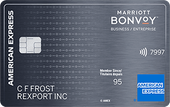Running your own business can be a rewarding experience, and many self-employed professionals have turned to using credit cards to maximize their benefit from business purchases. Credit cards for self-employed people have many benefits, such as earning bonus points on your most common business expenses, which makes it quicker to redeem points for travel or cashback rewards. In this article, we’ll explore everything you need to know about getting a credit card when you're self-employed, including who they’re for, who can apply, what you need to apply, and more.
Who can apply?
While there are many credit cards suitable for self-employed people, there are none specifically designed for the self-employed, so the same eligibility criteria applying to most credit cards also apply here. You need to have reached the age of majority in your province or territory, meet any requirements regarding citizenship or residency, and be able to prove your income from self-employment.
If you're running your business as a company and paying yourself a wage, you can supply pay stubs as proof of income, just like anyone else. But it's less straightforward if you are the sole proprietor of an unincorporated business. You may have to provide two years' worth of tax returns or assessments, or a proof of income statement from the CRA, accompanied by the latest financial statements for the business.
What will I need to apply?
You will need:
- Proof of identity (e.g. driver's licence or passport)
- Citizenship status (via birth or citizenship certificate) or residency entitlement (via a visa)
- Residential address, and other contact details
- Proof of income. As a self-employed individual, you will need to show documents that verify that you have had an income from this source for at least two years. These can be pay stubs (if you run your business as a company and pay yourself a wage), tax returns, tax assessments, CRA proof of income statement, or the financial statements (Profit and Loss statements) of your business.
- Savings. Showing lenders that you have the ability to save money lets them know that you won’t be a high risk for missing payments. But having savings is not essential.
- Reasonable credit score. This is what lenders evaluate when deciding whether or not you’ll be approved for a credit card. So the better your credit history, the higher your chances will be of getting approved.
Credit card alternatives
If you don't want to use a credit card, or are finding it difficult to get approved because you've only just begun self-employment, you do have other options:
- Debit card. Debit cards are the most popular alternatives to use, as they only let you spend what you have. These are linked directly to your bank account, so you never have to worry about being in debt. Conversely, you are limited to the capital in your account.
- Prepaid card. This works in a similar way to a debit card, but you pre-load it with cash instead of linking it to your bank account. They can be used in the same way to buy goods and services both online and in-store.
- Personal loan or business loan. Taking out a loan could be cheaper, especially if you can get a good interest rate. However, you need to be sure that you can afford repayments, as well as be aware of late fees and possible early loan discharge fees.
- Buy Now Pay Later services. Many companies offer Buy Now Pay Later plans for various purchases such as appliances, furniture, electronics, fashion and services. With this type of plan, you can purchase something you need and then spread the repayment over several interest-free installments. Late payment fees or interest charges may apply if you miss the payment due dates.





